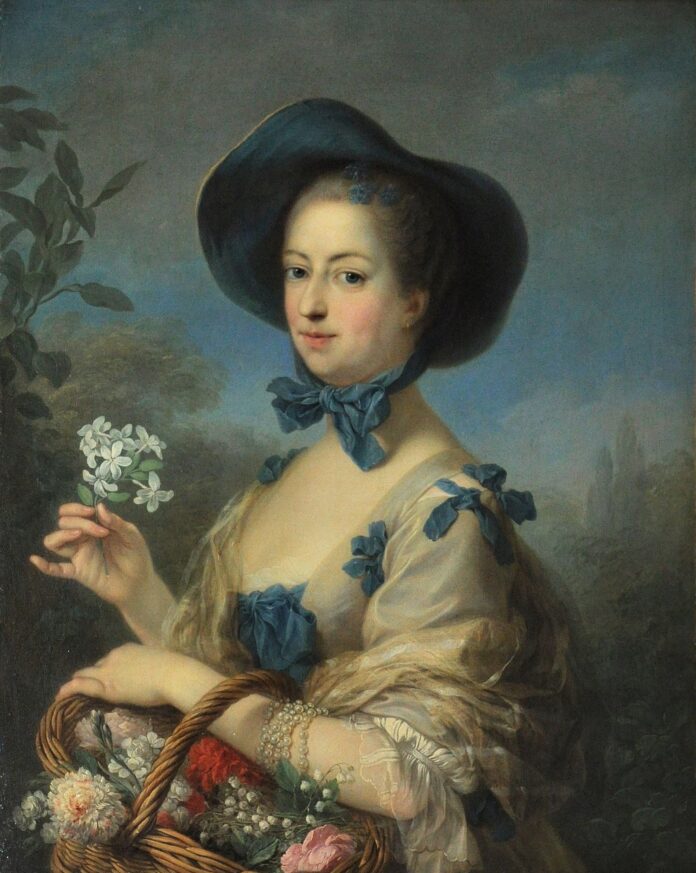Mansfield Park by Jane Austen: A Captivating Tale of Morality and Social Dynamics
Introduction
Mansfield Park, authored by the legendary Jane Austen, is a classic Regency romance that delves into the intricacies of society, morality, and the pursuit of love. Published in 1814, this timeless literary masterpiece continues to captivate readers with its insightful observations and complex characters. Set in the early 19th century, the novel explores themes of social hierarchy, the role of women, and the consequences of personal choices.
Plot Summary of Mansfield Park by Jane Austen
The story revolves around Fanny Price, a young girl from a poor background who is sent to live with the Bertrams, her wealthy relatives, at Mansfield Park in Northamptonshire. Fanny’s arrival disrupts the dynamics of the Bertram family as she struggles to find her place among her cousins and their privileged lifestyle. Despite facing constant criticism and neglect, Fanny remains steadfast in her moral principles and becomes an observer of the world around her.
Character Development
Austen masterfully crafts a diverse cast of characters, each with their unique flaws and virtues. Fanny, the novel’s protagonist, embodies Austen’s ideal of a virtuous woman. She is kind-hearted and humble and maintains her integrity in the face of societal pressures. Through Fanny’s journey, readers witness her growth from a timid girl to a confident woman, unafraid to challenge the status quo in the Regency period.
Another main character is Edmund Bertram, Fanny’s cousin and confidant, who initially overlooks her feelings while pursuing a misguided love interest towards the manipulative Mary Crawford, a charming and witty woman who serves as a catalyst for the novel’s conflicts. Austen skillfully explores the complexities of human nature through these characters, highlighting their flaws and the consequences of their actions.
Themes and Social Commentary
Mansfield Park delves into the social dynamics of the time, shedding light on the role of women and the importance of marriage in early nineteen-century society. Austen critiques the superficiality of the upper class, exposing their materialistic values and their tendency to prioritise wealth and status over genuine emotions and moral principles. The novel also explores the consequences of indulgence as characters face the repercussions of their immoral actions.
Morality is a central theme in Mansfield Park, as Austen emphasises the importance of personal integrity and the consequences of compromising one’s principles. Fanny’s unwavering moral compass starkly contrasts the flawed characters surrounding her, highlighting the significance of being and remaining true to oneself despite societal pressures.
The Unique Virtues of Fanny Price
Jane Austen, renowned for her portrayal of strong-willed and intelligent heroines, crafted a diverse range of female characters throughout her novels. Among them, Fanny Price from Mansfield Park stands apart as a heroine with distinctive qualities that set her apart from Austen’s other leading ladies. This novel makes the readers explore the contrasting virtues of Fanny Price and sheds light on the qualities that make her character truly unique in Austen’s literary world.
Fanny Price
A heroine of introspection and integrity, Fanny Price is often described as one of Austen’s most morally upright and introspective heroines. Unlike the more outspoken and vivacious characters like Elizabeth Bennet or Emma Woodhouse, Fanny is quiet, reserved, and self-aware. Her introspective nature allows her to observe the world around her with a discerning eye, making her an astute judge of character.
Fanny’s unwavering integrity and moral compass are her defining traits. She remains steadfast in her principles, even in the face of societal pressures and personal sacrifices. Fanny’s strong sense of right and wrong guide her actions, making her a beacon of virtue amidst the flaws and follies of those around her. Her unwavering commitment to her values sets her apart from other Austen heroines.
Contrasting Virtues in Mansfield Park by Jane Austen
Fanny Price and Austen’s other heroines, such as Elizabeth Bennet from Pride and Prejudice, are known for their wit, intelligence, and refusal to conform to societal expectations. Emma Woodhouse from the novel Emma possesses a vibrant personality and a penchant for matchmaking. Her rationality and emotional restraint characterise Elinor Dashwood from Sense and Sensibility. These heroines, while admirable in their own right, differ significantly from Fanny Price.
Fanny’s reserved nature and introspection make her less inclined to engage in witty banter or seek attention. She is content with her own thoughts and is often overshadowed by more extroverted characters. However, Fanny’s quiet strength lies in her ability to make astute observations and remain steadfast in her convictions, even when it means standing alone.
Unique Strengths and Resilience
Fanny Price’s journey in Mansfield Park showcases her resilience and ability to navigate challenging circumstances. Despite being constantly overlooked and undervalued by her relatives, she perseveres with grace and dignity. Her quiet strength and inner resilience enable her to endure adversity and emerge as a stronger individual.
Fanny’s humility and selflessness further distinguish her from other Austen heroines. While her counterparts may display moments of self-centeredness or pride, Fanny consistently puts the needs of others before her own. Her self-sacrificing nature highlights her deep empathy and compassion, making her a truly unique character in Austen’s literary canon.
The Uniqueness Of Fanny: The Unassuming Heroine of Mansfield Park by Jane Austen
Fanny Price, the unassuming heroine of Mansfield Park, possesses a set of virtues that set her apart from Jane Austen’s other leading ladies. Her introspection, unwavering integrity, resilience, and selflessness make her a distinctive character in Austen’s literary world. Fanny’s quiet strength and ability to remain true to herself, despite societal pressures, make her a role model for readers seeking a different kind of heroine—one whose virtues lie in her moral compass, resilience, and unwavering commitment to her principles.
The Complex Bond of Fanny Price and Edmund Bertram
A tale of friendship, love, and moral guidance is Jane Austen’s Mansfield Park, and readers are introduced to the intricate and evolving relationship between Fanny Price and Edmund Bertram. Their connection serves as the novel’s emotional core, weaving together themes of friendship, love, and moral guidance. As the story progresses, Fanny’s feelings for Edmund deepen into romantic love. However, their love is not without obstacles. Edmund’s initial infatuation with Mary Crawford compromises the special relationship between him and Fanny, leading to heartache and emotional turmoil. This complex love triangle tests their bond and forces them to confront their own desires and the consequences of their choices.
The Foundation of Friendship
Fanny Price and Edmund Bertram’s relationship is rooted in a deep, genuine friendship that develops over time. As cousins, they grow up together at Mansfield Park, sharing a mutual understanding and camaraderie. Fanny finds solace in Edmund’s company, appreciating his kindness, intellect, and moral compass. Edmund, in turn, values Fanny’s unique perspective and unwavering principles.
Moral Guidance and Influence
Edmund’s role in Fanny’s life extends beyond friendship; he becomes a moral compass and guiding force. As Fanny navigates the complexities of Mansfield Park’s social hierarchy, Edmund is there to offer guidance and support. His influence helps shape Fanny’s character, reinforcing her sense of right and wrong and aiding her in maintaining her integrity amidst the temptations and moral dilemmas she encounters.
The Blossoming of Unrequited Love
As the story progresses, Fanny’s feelings for Edmund develop into something deeper than friendship. However, their love is not without complications. Edmund’s initial infatuation with Mary Crawford, a manipulative and morally ambiguous character, distances Edmund and Fanny. This unrequited love serves as a catalyst for Fanny’s growth as she learns to navigate her emotions while remaining true to her principles.
The Role Reversal In Jane Austen’s Mansfield Park
Interestingly, as the novel progresses, the power dynamic between Fanny and Edmund begins to shift. Fanny’s unwavering moral compass and strength of character become increasingly apparent, while Edmund’s judgment is clouded by his infatuation with Mary. Fanny, in many ways, becomes the guiding force for Edmund, providing him with moral clarity and challenging his choices.
Resolution and Redemption
Ultimately, Fanny’s steadfastness and unwavering love for Edmund lead to his redemption. As he realises the error of his ways and the true nature of Mary’s character, he comes to appreciate the depth of Fanny’s love and the strength of her character. Their relationship finds resolution and a deeper connection as they recognise the value of their shared values and the transformative power of their bond.
A Complex Relationship
The relationship between Fanny Price and Edmund Bertram in Mansfield Park is a complex and multifaceted portrayal of friendship, love, and moral guidance. Their connection evolves from a foundation of friendship into a deep and profound bond that shapes their growth and development as individuals. Through their relationship, Jane Austen explores themes of loyalty, integrity, and the transformative power of love. Fanny and Edmund’s story serves as a testament to the enduring strength of genuine friendship and the significance of shared values in navigating the complexities of life.
Mansfield Park by Jane Austen: A Sober Novel
Among all the novels by Jane Austen, Mansfield Park is the most sober and austere romance. Indeed, the influence of the Evangelical movement is very present in the book. Nevertheless, as well as the other Austen novels, this story is about social and economic classes, and its focus is the moral behaviour of Mansfield Park’s characters. The integrity of Fanny corresponds to a not extremely beautiful complexion but a modest beauty. Whilst Edmund and Fanny are not flashy or showy, the Crawford siblings are attractive and rich. The moral emphasis of this novel is well-blended with social analysis and criticism of wealth ranks, marital status and residences. One of the intents of Jane is to criticise and expose the contemporary prejudices typical of early nineteenth-century society. Fanny is a typical Victorian heroine featured in physical fragility and austerity. Indeed, Fanny is the most morally impressive heroine created by Jane Austen.
Conclusion
Mansfield Park remains a celebrated work of literature due to Jane Austen’s insightful exploration of societal norms, moral dilemmas, and complex characters. Through Fanny Price’s journey, readers are confronted with the harsh realities of 19th-century society while also being reminded of the importance of integrity and staying true to one’s values.
Austen’s keen observations and witty prose make Mansfield Park a compelling read even today, as readers continue to find resonance in the novel’s themes of love, morality, and social dynamics. It is a legacy of Austen’s enduring literary art as a writer who skillfully dissected human nature’s and society’s intricacies, leaving an indelible mark on the academic world.
The society described in Mansfield Park by Jane Austen is set in early 19th-century England and revolves around the upper-class society of the time. It portrays a world of wealth, privilege, and social hierarchy. In this society, social status and wealth play a significant role in determining one’s place and opportunities. The characters in Mansfield Park are divided into different classes, with the Bertrams being the wealthy and influential family who occupy the highest position in society. They are seen as the epitome of refinement and sophistication.
The novel also explores the role of women in this society. Women are expected to be obedient, modest, and focused on marriage. Marriage is seen as the ultimate goal for women, as it secures their financial stability and elevates their social status. The character of Fanny Price, the protagonist, embodies the virtues of modesty and morality that are expected of women in this society.
Social events and gatherings, such as balls and dinners, are important occasions for the characters to display their wealth, status, and social connections. These events serve as opportunities for matchmaking and socialising, playing a significant role in the characters’ lives.
Overall, the society depicted in Mansfield Park reflects upper-class society’s norms, values, and expectations in early 19th-century England. It explores the complexities of social hierarchy, the role of women, and the pursuit of wealth and status.





